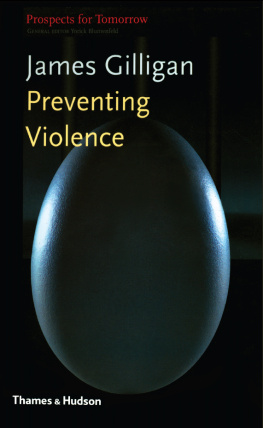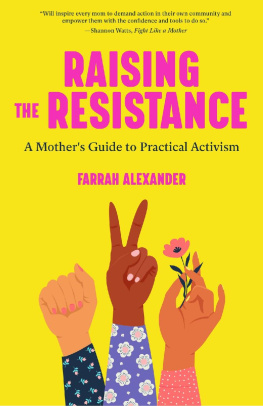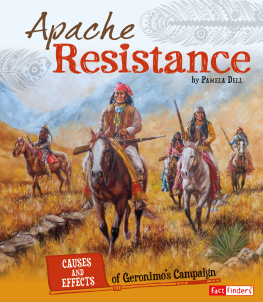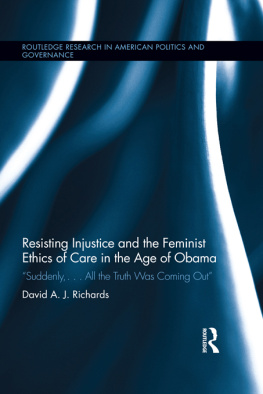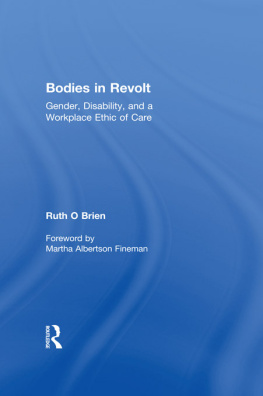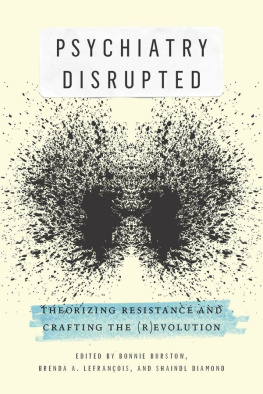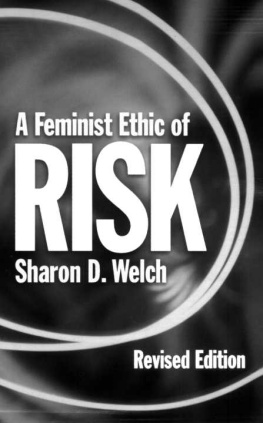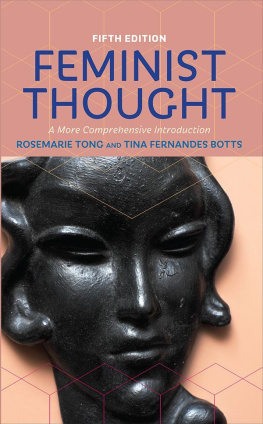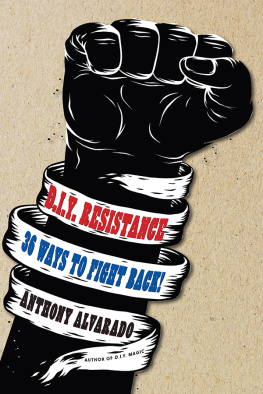Gilligan - Joining the Resistance
Here you can read online Gilligan - Joining the Resistance full text of the book (entire story) in english for free. Download pdf and epub, get meaning, cover and reviews about this ebook. City: Cambridge, year: 2013, publisher: Wiley;Polity, genre: Art. Description of the work, (preface) as well as reviews are available. Best literature library LitArk.com created for fans of good reading and offers a wide selection of genres:
Romance novel
Science fiction
Adventure
Detective
Science
History
Home and family
Prose
Art
Politics
Computer
Non-fiction
Religion
Business
Children
Humor
Choose a favorite category and find really read worthwhile books. Enjoy immersion in the world of imagination, feel the emotions of the characters or learn something new for yourself, make an fascinating discovery.

Joining the Resistance: summary, description and annotation
We offer to read an annotation, description, summary or preface (depends on what the author of the book "Joining the Resistance" wrote himself). If you haven't found the necessary information about the book — write in the comments, we will try to find it.
Gilligan: author's other books
Who wrote Joining the Resistance? Find out the surname, the name of the author of the book and a list of all author's works by series.
Joining the Resistance — read online for free the complete book (whole text) full work
Below is the text of the book, divided by pages. System saving the place of the last page read, allows you to conveniently read the book "Joining the Resistance" online for free, without having to search again every time where you left off. Put a bookmark, and you can go to the page where you finished reading at any time.
Font size:
Interval:
Bookmark:
65 Bridge Street
Cambridge CB2 1UR, UK
350 Main Street
Malden, MA 02148, USA
This book is for Diana de Vegh
Isnt the
honesty
of things where they
resist,
where only the wind
can bend them
back, the real weather
Jorie Graham
In the summer when I was two-and-a-half, my mother, a forward-looking woman interested in the latest developments and invested in raising her child, took me to Clara Thompsons institute at Vassar College designed to impart psychoanalytic wisdom to the parents of young children. Like many such experiments, it was conceived with the best of intentions: the children would attend nursery school while the parents learned about child development. Though set in the midst of American society, it was organized like a kibbutz: the children would live in one building or dormitory while the parents lived in another. It was an arrangement my two-year-old self could not imagine, despite the careful preparation. I loved the nursery school and my teacher whose name I remember to this day, but when it came to bedtime, I wanted my mother, not some metapelet, to put me to sleep. And so, at a very young age, I discovered the power of voice to bring about change. Like Joshua with his trumpet at Jericho, I found that by crying loud enough and long enough walls can come tumbling down. The rules gave way and my mother was summoned. An exception was granted: she could put me to bed and sing me to sleep. I never learned what Clara Thompson thought of this breach in practice and can only imagine what was said about me to justify this irregularity, but my mother, God bless her, always cherished this display of spirit on my part, whatever embarrassment it may have caused her, and its possible that the other children also enjoyed her singing.
Years later, I found an ethical rationale for what at two was a protest against resignation. It was the late 1960s, I had completed my Ph.D. in psychology, and being the mother of three young children, I was looking for part-time work. At a party given by a friend, I was introduced to Lawrence Kohlberg. His theory of moral development captured the passion for justice that had inspired me along with many members of my generation to take action on behalf of civil rights and to protest what we saw as an unjust war. When he offered me a job as a research assistant, I accepted and thus became involved in the lively discussions provoked by his claim, following Socrates, that virtue is one and its name is justice. Moral development follows a single path, leading beyond self-interest and societal conventions to a principled understanding of justice as fairness. It was a theory that captured the spirit of the time, providing a justification for civil disobedience.
For a long time, I did not see the connection between my early experience at Vassar and the questions about voice and resistance that have inspired my research. It explains my optimism about the possibility of having an effect, even against considerable odds. Yet what strikes me more particularly is that my resistance to losing a ground of relationship I had taken for granted was a resistance I would see again in four- and five-year-old boys and in adolescent girls. And even at these later ages, when the issue was not wanting their mother, it brought them up against institutional structures that seemed firmly entrenched.
Over the past forty years, a confluence of evidence in the human sciences, coming from developmental psychology and sociology, neurobiology and evolutionary anthropology, has shown that we are, by nature, responsive, relational beings, born with a voice and into relationship, hard-wired for empathy and cooperation, and that our capacity for mutual understanding wasand may well bekey to our survival as a species. When I say this on a panel in the fall of 2010, I am contradicted by my two co-panelists, both distinguished academicstold in no uncertain terms that by nature we are aggressive and competitive, driven by evolution to the pursuit of self-interest. What accounts for this disparity?
In her artists statement for her exhibition Proud Flesh, the photographer Sally Mann identifies herself as a woman who looks. Photographing her husband of forty years, let[ting] the sunshine fall voluptuously on a still beautiful form, the two of them still in love, still at work, she is aware of the risk she is taking:
Within traditional narratives, women who look, especially women who look unflinchingly at men, have been punished: Take poor Psyche, punished for all time for daring to lift the lantern to finally see her lover The act of looking appraisingly at a man, making eye contact on the street, asking to photograph him, studying his body, has always been a brazen venture for a woman, though for a man these acts are commonplace, even expected.
I remember standing in the Gagosian gallery on Madison Avenue on a rainy Thursday afternoon, the luminosity of the photographs like light from a distant star. I had never seen a man photographed in this way before, with an eye so loving, so insistent on seeing. Alone in the quiet gallery, I realized that Mann had broken a taboo.
Its true that the mythical Psyche was punished for breaking Eross injunction against her seeing him or speaking about their love. When she lifted the lantern, she was planning to kill him, having been told by her sisters that he was a monster, intent on devouring her and their child. What stilled her hand was his beauty, and also his humanness, his vulnerability. The stories about him turned out not to be true. What she saw was what she had known about him in darkness and silence: he was a tender and responsive man. And although Eros does carry out his threat to leave her if she tries to see him, and Psyche is subjected to all manner of torments and trials, the story has a happy ending. Joined as equals in a just and everlasting marriage, Psyche and Eros become the parents of a daughter named Pleasure. Its easy to forget this ending, because the path leading to happiness seems so improbable.
Like Mann, I have lived in a long marriage, still in love and still at work. My husband and I have raised three sons. My mother loved men and I grew up loving two fathers, my father and also his father who lived with us through most of my childhood. When I went back to Harvard after graduate school to teach part-time, I gravitated to Erik Erikson and Lawrence Kohlberg whom I recognized as intelligent and sensitive men, with a playful side like my grandfather and an ethical sensibility like my father. Knowing them personally, I could see the roots of their work in their lives. Erik had named himself Erikson after discovering that he had grown up not knowing that he was the son of a Danish man; Kohlberg had been caught as a child in the moral dilemma precipitated by his parents divorce: should his mother give up custody of him in order to enable him to secure his inheritance from his wealthy father? Both men became fathers to me in the sense of showing me a way into psychology that engaged my interests, and by their example encouraged me to pursue my own questions. I did not anticipate that by following in their footsteps (as they had followed Freud and Piaget), I would find myself in forbidden territory. It was one thing to bring mens lives into history and generalize from mens experience. To do so with women broke a silence.
Font size:
Interval:
Bookmark:
Similar books «Joining the Resistance»
Look at similar books to Joining the Resistance. We have selected literature similar in name and meaning in the hope of providing readers with more options to find new, interesting, not yet read works.
Discussion, reviews of the book Joining the Resistance and just readers' own opinions. Leave your comments, write what you think about the work, its meaning or the main characters. Specify what exactly you liked and what you didn't like, and why you think so.

